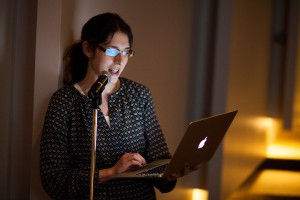
Social media meets scholarship during JewDub Talks: the author fields a question for a lecturer via the UW Jewish Studies Twitter feed (@jew_dub). Photo by Meryl Schenker Photography.
What other universities around the country can present four substantive lectures on Jewish topics in about an hour–with the option for viewers to watch online and simultaneously take part in Twitter debates about the speakers’ presentations?
At the second annual JewDub Talks on Nov. 7th, the UW Stroum Center for Jewish Studies showed why it has garnered national attention for its creative use of digital technologies to provide greater access to scholarship. The lecture topics ranged far and wide: what kind of food was eaten by conversos (Spanish Jewish converts to Christianity)? Why is Spinoza still such a controversial figure? How does family history impact our intellectual journeys? Why does anti-Semitism continue to make inroads in the modern church?
A unifying feature of all the talks, though, was their accessibility to the public in real and virtual spaces. The livestreaming option, new this year, allowed viewers around the world to tune in and hear the talks in real time. Meanwhile, our Twitter message board lit up as @jew_dub live-tweeted updates from the event as well as soundbites from each lecture. Viewers tweeted comments and questions for the speakers directly to @jew_dub. Talk about the democratization of knowledge!
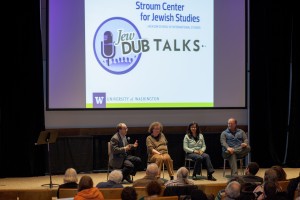
Prof. Michael Rosenthal answered a question about Spinoza’s contemporary relevance during the Q&A at JewDub Talks. Photo by Meryl Schenker Photography.
UW Alum Elena Reitman was one of the virtual participants in the event. A former student of Prof. Galya Diment, an expert in Russian literature who was one of the night’s featured speakers, Reitman tweeted a question to @jew_dub which was then relayed to Prof. Diment during the live Q&A. (Her question: “Which writers do you find best express the uneasy identity you mentioned of Soviet Jews?”) She published a blog post describing her experience of JewDub Talks and praised UW Jewish Studies for its incorporation of technology and new media. Here’s a sample from her piece:
I was quite impressed by the program’s adaptation of new media. All the elements were generously set up for me to join. I could follow the talk through Livestream and participate in parallel discussions on Twitter using the #JewDubTalks hashtag from the comforts of a couch and an iPad. I was also able to ask a question to the panel of professors and get an answer. It’s unlikely I would have asked it in in front of a live audience in a large lecture hall.
As a content and idea person, I can’t but respect the ability of academic departments to deliver insightful and mind bending material. Combining an academic department’s collective intelligence with communications folks versed in new media and ability to translate material to a general audience is a winning duet.
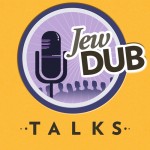 Want to read the rest of Elena’s piece? Click here for the full story on her blog.
Want to read the rest of Elena’s piece? Click here for the full story on her blog.
And if you missed this year’s JewDub Talks, fear not: you will be able to catch the videos on our YouTube Channel in the winter quarter!

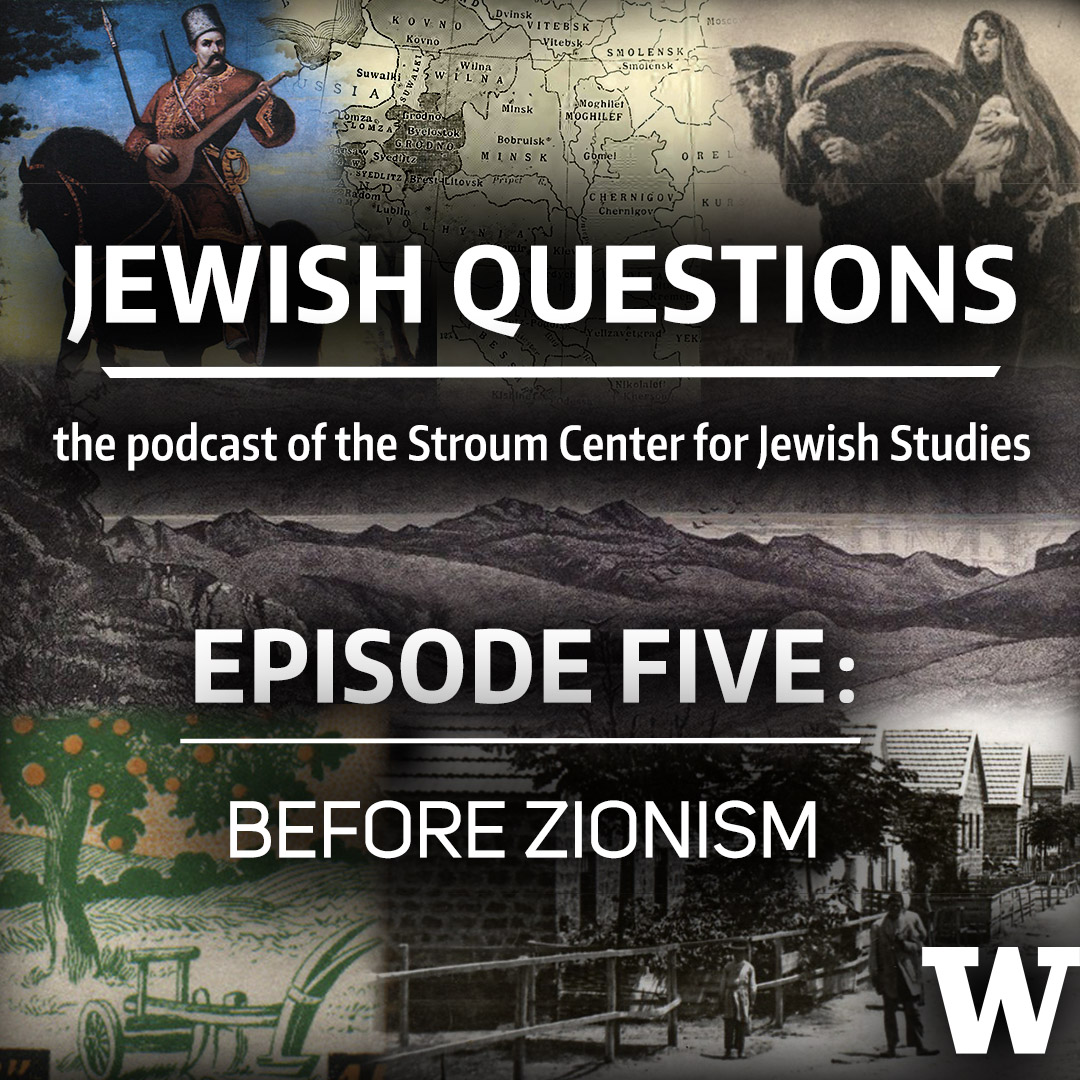
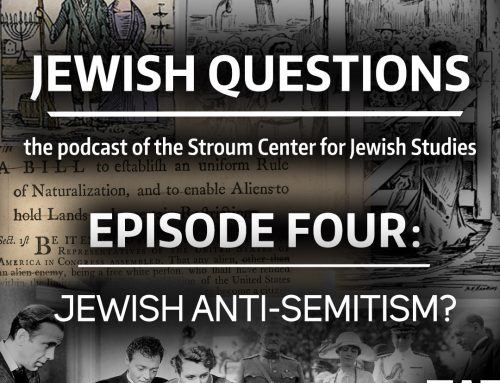
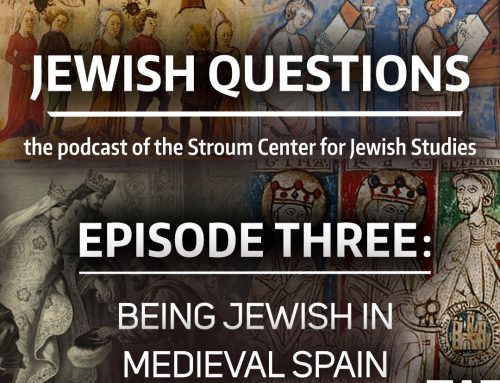
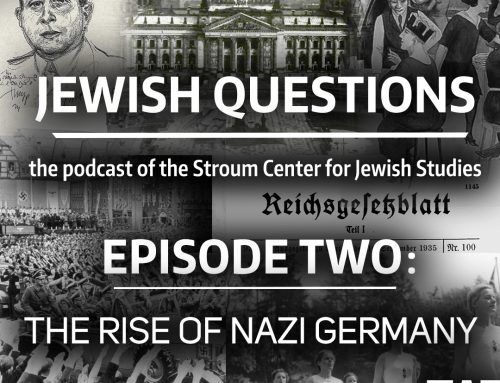
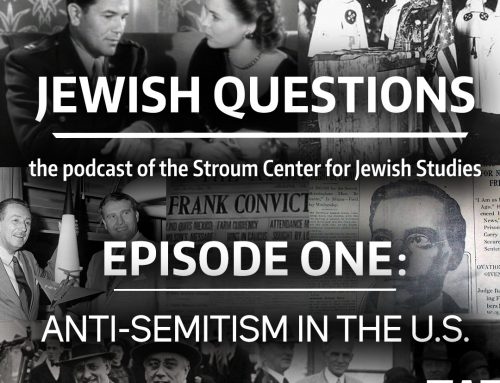
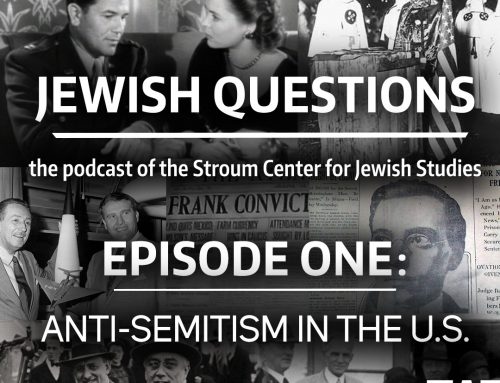
Leave A Comment